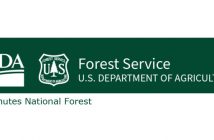A Pease Symposium is set for September 19, 6:30 pm at the Riverhouse that includes a dinner and program on the challenge of overdiagnosis in population screening for disease.
The keynote speaker is H. Gilbert Welch, MD, MPH, Professor, Dartmouth Institute of Health Policy and Clinical Practice and Geisel School of Medicine at Dartmouth. Dr. Welch is a nationally recognized expert on the effects of medical screening and risk communication who has appeared on The Today Show, CNN, and NPR.
Dr. Welch’s book Overdiagnosed: Making People Sick in the Pursuit of Health, has an Amazon rating of 4.8 (of 5) rating and currently the 35th most purchased book in the Medicine:Diagnosis category.
Overdiagnosis happens when people get a diagnosis they don’t need. It can happen 1) when people without symptoms are diagnosed and then treated for a ‘disease’ that won’t cause them symptoms during the rest of their life and 2) for people whose symptoms or life experiences are given a diagnostic label that will bring them more harm than good.
Although hard to believe, there’s growing scientific evidence suggesting that many people are being overdiagnosed, especially in the U.S., across many different conditions, from asthma to autism to Alzheimer’s to cancer, from high blood pressure to low bone density to gluten sensitivity. Fierce debates are raging in many specialty areas, from psychiatry to kidney medicine, over whether boundaries defining illness have been pushed aside and whether too many people are unnecessarily being turned into patients. Most physicians have difficulty understanding overdiagnosis and how to explain it to their patients and their need to be more informed about the risks versus benefits.
The cost of too much medicine is not only physically and emotionally harmful, it is financially devastating to individuals and to our country. Last year, the Institute of Medicine estimated that the U.S. spends $210 billion annually on overutilization of medical services and procedures. If all unnecessary medical interventions are considered, the estimate is between $250B and $800B per year. Overly aggressive treatment is estimated to cause 30,000 deaths among Medicare recipients alone each year. In December, breast cancer specialists at the University of California at San Francisco reported their estimate that $7.9 billion is spent annually in the U.S. on screening mammography, of which $5.5 billion is in excess of the U.S. Preventive Services Task Force guidelines of 2010.
This Pease Symposium is opportune, with several related events before it will be held.
• An international conference on Preventing Overdiagnosis: Winding Back the Harms of Too Much Medicine will occur on September 10-12 at the Dartmouth Institute for Health Policy and Clinical Practice in Hanover. New Hampshire. This world event is co-sponsored by the BMJ, ranked among the top medical journals in the world, Consumer Reports, the leading consumer organization, and Bond University.
• On July 4, the New York Times published an editorial by Dr. Welch that asked why there has been no outright outrage about our problem of overdiagnosis.
• On July 29, JAMA, also rated among the top medical journals, published a request by cancer experts, including a renowned breast cancer surgeon at the University of California at San Francisco, to replace the words cancer and carcinoma from biopsy findings that account for much of the overdiagnosis in cancer screening and to identify them instead as IDLE (indolent lesions of epithelial origin).
• On July 30, the U.S. Preventive Services Task Force posted their proposed recommendations to scale back lung cancer screening to apply only to heavy smokers or former smokers at the age of highest risk.
• Since November last year, the New England Journal of Medicine, the most prestigious medical journal, has published 11 reports, survey results, case report discussions and opeds on screening mammography, including an original report by Drs. Welch and Archie Bleyer (of OHSU and St. Charles Health System) on how many women in the U.S. have been and are being overdiagnosed with breast “cancer.”
• On May 6, the Central Oregon Medical Society held a debate on the topic at the Awbrey Glen Clubhouse; COMS has also posted the latest opinions on the topic by specialists and primary care providers and their organizations at www.comedsoc.org. Under Hot!Topics, select Overtreatment, or Breast Cancer Screening or Prostate Ca Screening.
Objectives of the Symposium
• To review the requisites of successful disease screening
• To elucidate overdiagnosis as a disease screening risk
• To illustrate with cancer screening the potential magnitude of overdiagnosis
• To realize the potential of overdiagnosis in adversely affecting the Triple Aim of healthcare
• To assist the public and careproviders in understanding the relevance of overdiagnosis
Physicians, nurses, pharmacists and dentist will be able to receive 1.5 hours continuing education credit needed for relicensesure.
Dr. Bradford Pease was one of the three physicians who founded the Bend Memorial Clinic 65 years ago. He graduated from the Stanford University in 1933, and earned his medical degree from the Harvard Medical School in 1936. He completed his surgical internship and residency at OHSU between 1936-40. He came to Bend in 1945 and was the first fully trained surgeon to come to the area. Dr. Pease was also a founding father of Mount Bachelor, and helped catalyzed Bend’s evolution from sleepy mill town to bustling tourist destination.
Sponsors • Central Oregon Medical Society • Bend Memorial Clinic
• Volunteers in Medicine Clinic of the Cascades • St. Charles Foundation
• Central Oregon Independent Practice Association • Central Oregon Dental Society
• The City Club of Central Oregon • PacificSource
• Oregon State University Cascades Campus • Central Oregon Community College
Register at www.coms.eventbrite.com. $20 general admission includes reception, exhibits, hors d’oeuvres, 3-course dinner and program. Health profession student may attend at no charge provided they present their school ID at the entrance/


